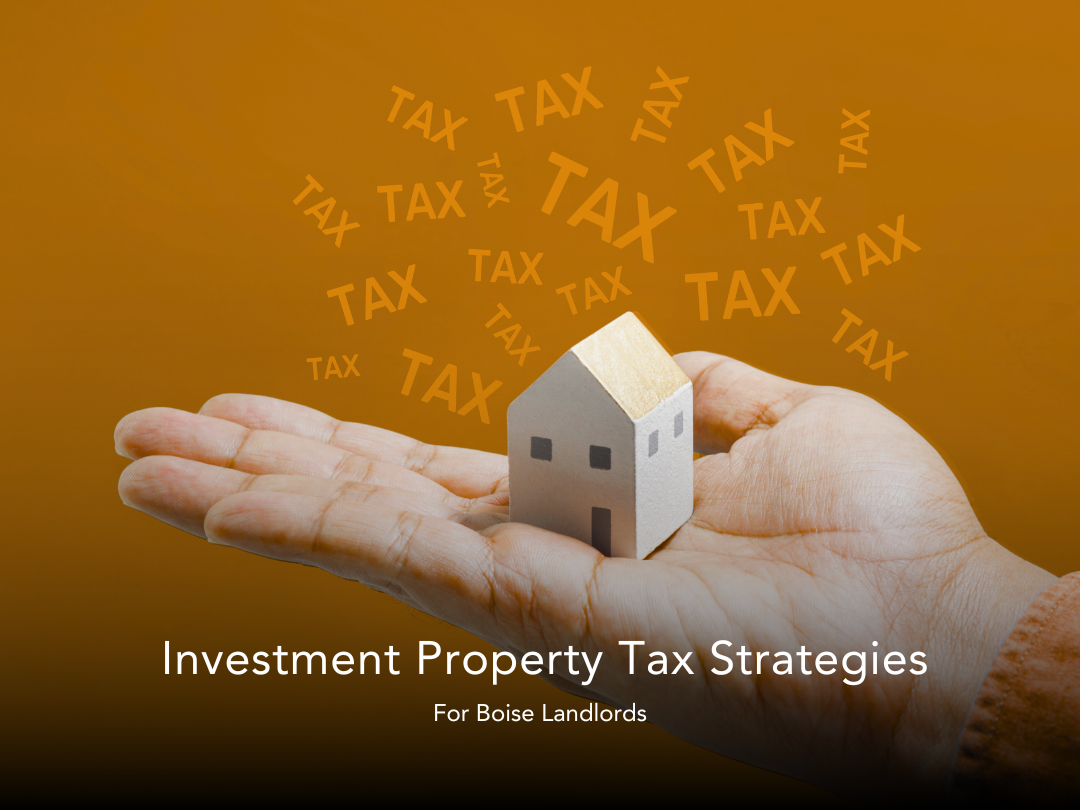Investing in rental properties can be lucrative, but effective property management is required to maximize returns and ensure long-term success. Boise, Idaho, offers a thriving real estate market with plenty of investment opportunities. However, managing investment properties requires knowledge, strategy, and adherence to best practices. In this guide, we will explore the essential best practices for investment property management in Boise.
Conduct Thorough Market Research:
Before investing in a property, it's crucial to conduct comprehensive market research. Understand the local rental market in Boise, including vacancy rates, rental rates, and demand for different property types. Analyze historical trends and future projections to make informed investment decisions. Market research will help you identify the most profitable areas, determine optimal rent prices, and target the right tenant demographic.
Set Clear Investment Goals:
Define your investment goals from the outset. Determine your desired return on investment (ROI), cash flow requirements, and long-term growth objectives. Clear goals will guide your property selection, pricing, and investment strategy. Additionally, having a clear vision will help you evaluate the success of your investment and make necessary adjustments along the way.
Create an Effective Marketing Strategy:
To attract quality tenants and minimize vacancies, develop a robust marketing strategy. Highlight the unique features and benefits of your rental property. Leverage online platforms, such as property listing websites and social media, to reach a wide audience. Utilize professional photography and well-written descriptions to showcase the property's appeal. Respond promptly to inquiries, schedule showings, and quickly streamline the rental application process to secure quality tenants.
Thorough Tenant Screening:
Screening potential tenants is a critical step in investment property management. Implement a thorough screening process to minimize the risk of problematic tenants. Conduct background and credit checks, verify employment and income, and contact previous landlords for references. Adhere to fair housing laws and ensure consistency in the screening process to avoid discrimination.
Establish a Solid Lease Agreement:
A well-crafted lease agreement is essential for a successful landlord-tenant relationship. Clearly outline the terms and conditions, including rent amount, due dates, lease duration, and maintenance responsibilities. Include clauses related to late payment penalties, pet policies, and property rules to protect your interests. Consult with legal professionals or property management experts to ensure your lease agreement complies with local laws and regulations.
Prompt Rent Collection and Financial Management:
Establish a streamlined rent collection process to ensure timely payments. Utilize online payment platforms to facilitate convenient rent collection from tenants. Implement clear late payment policies and follow consistent procedures for handling delinquent payments. Maintain accurate financial records, including income, expenses, and taxes, to track the financial performance of your investment property.
Regular Property Maintenance:
Investment properties require regular maintenance to preserve their value and appeal to tenants. Implement a proactive maintenance plan, including routine inspections, preventative maintenance, and prompt repairs. Address maintenance requests promptly to satisfy tenants and prevent minor issues from escalating into significant problems. Develop relationships with reliable contractors and service providers to ensure timely and cost-effective repairs.
Effective Communication with Tenants:
Maintaining open and effective communication with tenants is vital for successful property management. Respond promptly to tenant inquiries, concerns, and maintenance requests. Provide clear communication channels like phone, email, and online portals to facilitate easy interaction. Regularly communicate important information, such as lease renewals, policy updates, or property-related announcements.
Stay Informed of Local Laws and Regulations:
As a property owner and landlord, staying informed of local laws and regulations governing rental properties in Boise is essential. Understand tenant rights, eviction procedures, fair housing laws, and property maintenance requirements. Compliance with legal obligations will protect you from potential legal issues and maintain positive landlord-tenant relationships.
Consider Professional Property Management Services:
Managing investment properties can be demanding, especially if you have multiple properties or limited time. Consider partnering with a professional property management company, such as 208 Properties, to handle the day-to-day property management responsibilities. Experienced property managers have the expertise, resources, and local knowledge to effectively market properties, screen tenants, handle maintenance, and ensure legal compliance. Outsourcing property management allows you to focus on other aspects of your life or business while enjoying the benefits of a well-managed investment portfolio.
Stay Updated on Market Trends and Rental Rates:
Boise's real estate market is dynamic, and staying updated on market trends and rental rates is essential for successful investment property management. Monitor local real estate news, economic indicators, and demographic shifts that may impact the rental market. Understanding market trends will help you make informed decisions regarding rent adjustments, property upgrades, and potential acquisitions. Additionally, regularly analyzing rental rates in your area will ensure that you remain competitive and maximize your rental income.
Proactive Tenant Retention Strategies:
Retaining quality tenants benefits your investment property's financial stability and overall property management efforts. Implement proactive tenant retention strategies to encourage lease renewals and long-term tenancies. Offer incentives for on-time rent payments, provide prompt and attentive maintenance services, and cultivate a positive and responsive landlord-tenant relationship. Regularly assess your property's amenities and consider adding value-added features to enhance tenant satisfaction and reduce turnover.
Embrace Technology and Property Management Tools:
Technology has revolutionized the property management industry, and embracing the right tools can significantly streamline your operations. Utilize property management software to automate rent collection, maintenance requests, and lease renewals. Online portals can enhance communication with tenants, allowing them to submit maintenance requests, view account statements, and access important documents. Embracing technology not only improves efficiency but also enhances the tenant experience.
Continual Education and Professional Development:
The property management industry constantly evolves; ongoing education and professional development are crucial for staying ahead. Attend industry conferences, join property management associations, and participate in webinars or workshops to expand your knowledge and network with other industry professionals. Enhancing your skills and staying updated on industry best practices will position you as a knowledgeable and reputable property manager.
Regular Property Evaluations and Performance Analysis:
Conduct regular property evaluations and performance analyses to assess the financial health and overall performance of your investment properties. Analyze key performance indicators such as occupancy rates, rental income, and expenses. Identify areas for improvement and develop strategies to optimize your property's financial performance. Regular evaluations will help you identify opportunities to increase rental income, reduce expenses, and make informed decisions about property upgrades or divestments.
By implementing these additional best practices, you'll further enhance your property management efforts and set yourself up for success in the Boise real estate market. Remember that successful property management requires ongoing commitment, adaptability, and a focus on providing exceptional service to both your tenants and your investment portfolio.












